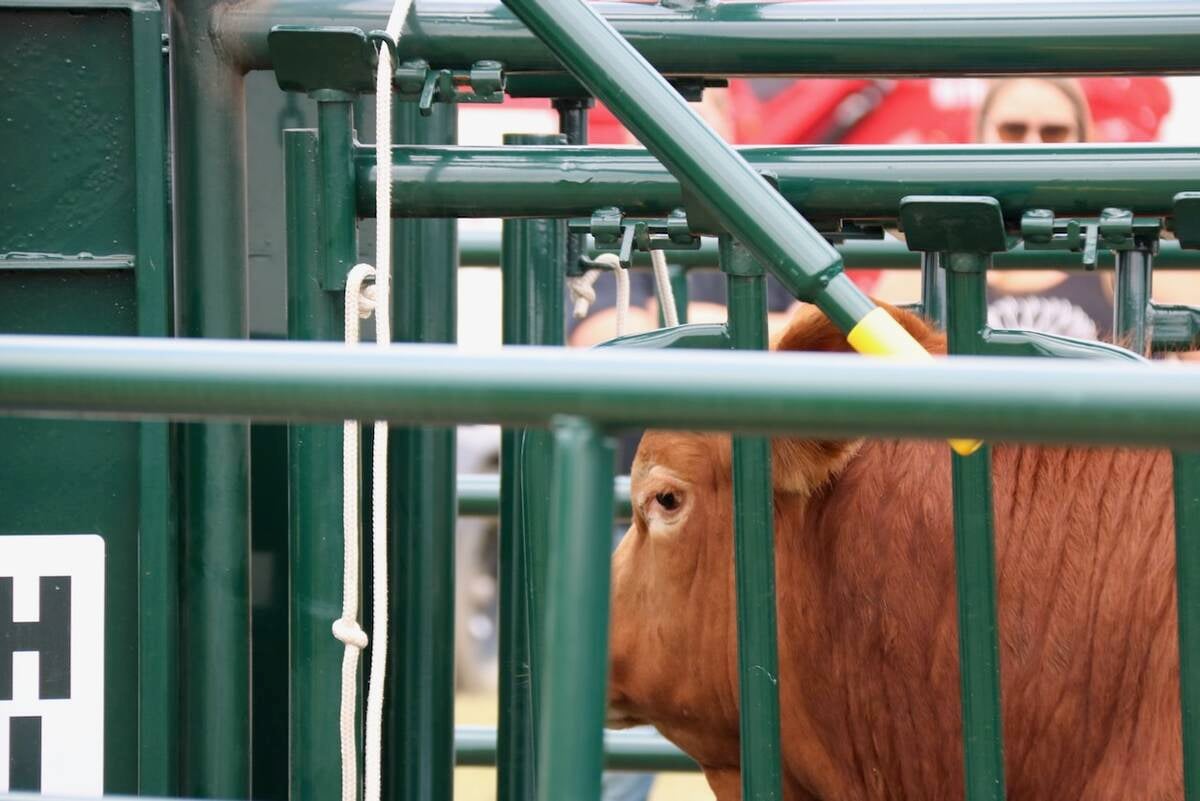The backlash against genetically modified food is forcing governments, scientists and private companies that develop these products to rethink their activities.
The scientists say they never anticipated the fierce consumer backlash when they began unravelling the mysteries of life in genetic codes.
“When this came along, those of us in the breeding community saw this as a new tool to use,” said Graham Scoles, who works with crop biotechnology at the University of Saskatchewan.
“One could not have seen the concerns that have arisen since then.”
Read Also

Good handling equipment a must on cattle operations
It’s important for the safety of producers and everyone else dealing with their stock that handling equipment is functional and safe.
Emotions and food scares are keeping some genetically modified products out of certain markets, he said, yet many people forget herbicide or disease resistance can also be bred into plants using traditional plant breeding methods.
Scoles said the rejection of GMOs may be more of a trade barrier than a scientifically based reason.
As well, a deep distrust of science has developed since the mad cow disease scare of 1996, which killed thousands of cattle in the United Kingdom after they were fed protein supplements derived from sheep. Scoles said scientists assured the public these supplements were safe, but they were mistaken.
Edna Einseidel, a communications professor at the University of Calgary, organized a citizens’ forum to discuss in layman’s terms how this new science affects them.
She said the public is confused by the disagreements they see among experts.
While Canadians generally accept biotechnology for medical purposes, they are more reluctant about accepting GMOs in their grocery cart.
Einseidel plans to launch a national study to test Canadians’ attitudes about biotechnology. People were largely in favor of the work three years ago, but she suspects that may have changed.
“GMO has become a liability,” she said.”Trust is a requisite for the technology to succeed.”
The Canadian Wheat Board is polling its customers to see if they are willing to buy GM cereals.
After questioning 25 customers, the board learned that millers and maltsters are willing to accept bioengineered crops with some conditions.
The study will be repeated this April to measure whether attitudes have changed, said Earl Geddes, program director of marketing and head of the biotechnology strategy at the board.
A consistent message from these processors said they are only interested in transgenics if there is value in it for them. They want functional changes that improve starch, protein or nutrient levels.
Maltsters are looking for better enzyme activity to brew better beer. They are not interested in herbicide-resistant crops.
The survey found a positive response to plants carrying disease resistance. Grain blends better if it is resistant to fusarium head blight.
The wheat board prefers quality over herbicide resistance. It said it is not interested in trying to sell transgenic grains that do not earn a premium.
“It has to be a positive event for farmers or it is not worth doing,” Geddes said.
Further, markets will be lost if the public refuses to buy food products containing transgenic grains.
Some Japanese processors have announced they are switching to wheat starch rather than cornstarch to avoid the GMO controversy.
“The customer is going to dictate whether they are going to buy food with those ingredients in it,” said Geddes.
“There is lots of potential using this technology but the underlying reality is that if consumers reject it, there is no market.”
The Alberta Barley Commission plans to poll its members to discuss genetically altered barley varieties.
There is concern among some farmers that too much control rests with multinational companies that develop and own the seed.
Since many sell their grain to the livestock industry, they worry it could affect sales if beef, pork or poultry customers say they do not want meat from animals eating genetically altered grain.
“We have to be extremely careful about adopting GMO barley,” said Clifton Foster, manager of the barley commission.
“It could develop into a problem similar to canola.”















